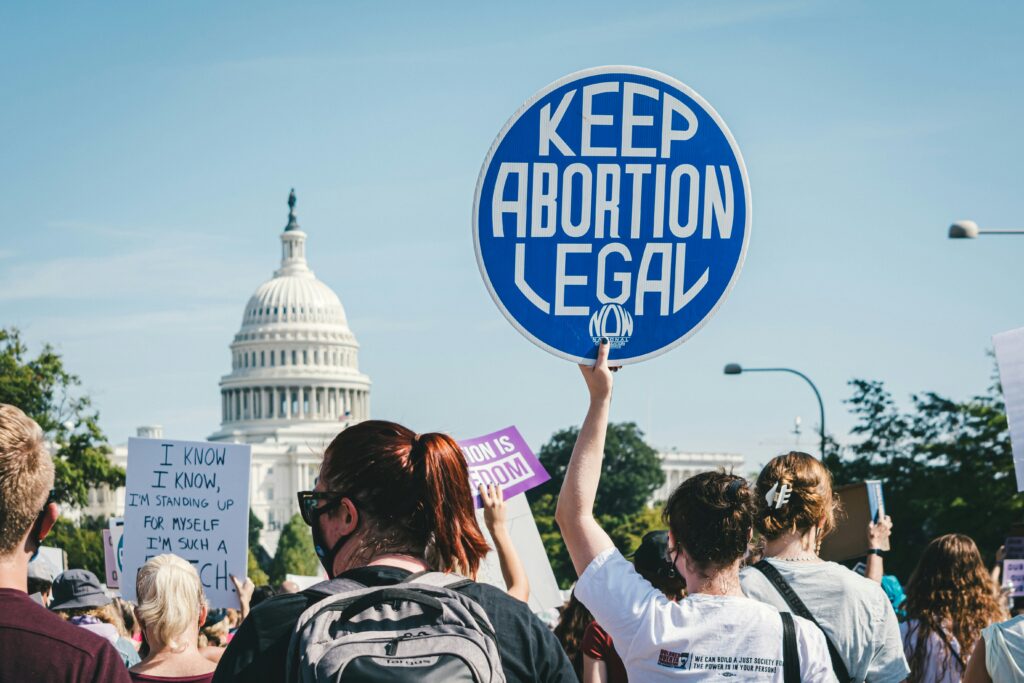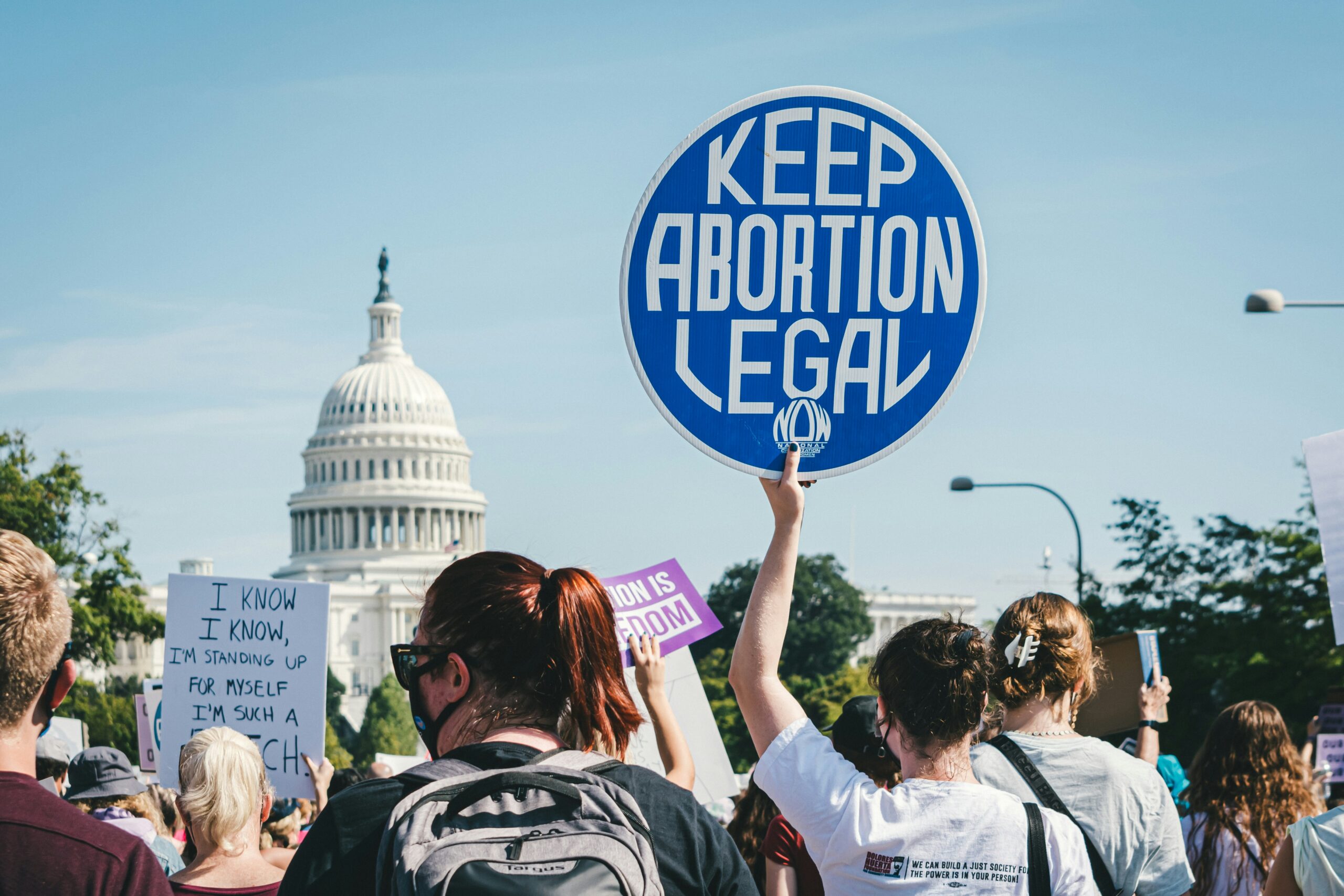
The Global Gag Rule is a clear example of the influence of American abortion policy on reproductive rights worldwide. It denies women their rights and access to abortion across the globe.
What is the Global Gag Rule?
The Global Gag Rule prohibits foreign nongovernmental organisations (NGOs) from receiving funding from the US government if they provide, advocate for, or refer to abortion services. Even though US money never funds abortion overseas, under the Gag Rule, organisations must sign to say they won’t participate in anything abortion-related, even with their own money.
Officially known as the ‘Mexico City Policy’ and renamed under Trump as the ‘Protecting Life in Global Health Assistance Policy,’ the Global Gag Rule has been reinstated by every Republican President since it was first introduced by Ronald Reagan in 1984.
It’s known as a ‘gag rule’ because it has a silencing effect: it has created confusion, reinforced negative attitudes, suppressed healthcare information, and buried important conversations around women’s health. Some organisations were scared to refer women to safe abortion services, even in cases of rape, incest, or to save a woman’s life (the policy permits abortion under these circumstances), and some NGOs ceased their advocacy work in case it stripped them of their funding.
The US is the largest government donor worldwide, providing tens of billions of funding each year to health and humanitarian causes around the globe; so thousands of organisations and millions of people rely on US funding to provide and access essential healthcare.
When was the Global Gag Rule implemented?
The Global Gag Rule was first implemented on January 22, 1984, under President Ronald Reagan at a conference in Mexico City. Since then, it’s been enforced by every Republican president and repealed by every Democratic one.
This constant cycle has caused real harm, as each reinstatement cuts critical funding and disrupts life-saving safe abortion services for women and girls worldwide. For decades, the rule has threatened reproductive rights, creating fear and confusion, especially in communities where access to essential healthcare is already fragile.
Why was the Global Gag Rule implemented?
The Global Gag Rule was implemented in an attempt to control women’s bodies and choices, and limit access to essential reproductive healthcare. Despite overwhelming evidence that restricting abortion doesn’t stop them from taking place—it only makes it unsafe—this policy was designed to block funding to organisations that offer a full range of reproductive healthcare.
The Global Gag Rule is a reminder that the fight for reproductive freedom is far from over and that policies like these disproportionately harm women, particularly those in marginalised and underserved communities.
The Global Gag Rule under Trump
MSI has never and will never sign the Global Gag Rule.
We are proud to provide safe abortion services wherever the law permits. This meant that when Trump was in office and implemented the largest expansion of the policy in its history, we lost around $30 million a year. The impact on women and girls was devastating. Some of MSI’s services were forced to close down in Uganda, Madagascar and Nepal (to name a few).
During Trump’s full term, continued US funding would have allowed us to prevent 6 million unintended pregnancies, 1.8 million unsafe abortions and 20,000 maternal deaths. Excluding reproductive healthcare organisations like MSI from US funding results in lives lost and women’s future opportunities stolen.
Read the stories of three incredible women who defied Trump’s Gag Rule.
“I got pregnant since the [contraceptive] method wasn’t there. Food is already difficult to find, and we weren’t able to buy medicines because there are none in this health centre. The truth is that I didn’t choose to get pregnant.”
– A woman from Madagascar,
interviewed by Colombia University on the impact of the Global Gag Rule

What’s the latest with the Global Gag Rule?
Even when the Global Gag Rule is repealed by Democratic presidents, it takes time to repair the damage done: to re-open closed programmes, re-forge partnerships, and get services up and running.
In January 2021, Joe Biden repealed the Global Gag Rule to protect access to reproductive healthcare. But with the closures of services and funding shortfalls already experienced, its damaging effects continue to reverberate.
Recently our partners at the Guttmacher Institute published a first-of-its-kind study, developed with insights from MSI’s programmes, revealing the Gag Rule disrupted critical health services in Uganda and Ethiopia. It stalled and reversed progress in reproductive health, with long-term harms to women’s and girls’ ability to make decisions about their own bodies and healthcare.
“Trump is expected to reinstate the Global Gag Rule and expand it further. He has his sights set on rolling back reproductive rights globally.”
– Amanda seller, MSI US President
MSI will continue to fight for and provide abortion care across the world.
Learn more and support the fight back:

Choice is on the ballot
2024 is the biggest election year in history. Find out how you can choose choice.

Brief: Impact of the GGR
Learn more about how the Global Gag Rule has impacted frontline reproductive healthcare.

The impact of Roe v Wade
Read more about modern US abortion law, the overturning of Roe v Wade, and its impact on the world.








